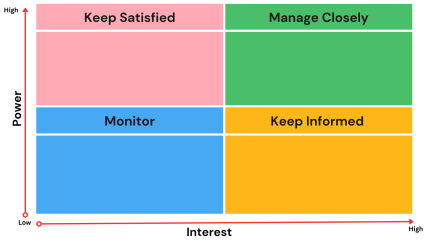If you’re like most business leaders, you know that change is a constant in today’s competitive environment.
You also know that in order to be successful, your organization must be able to adapt quickly to changes in business.
That’s where Human Resource Management (HRM) comes in – playing a critical role in change management.
HRM has multiple roles in change management. Regardless of type of organizational change, HRM takes care of hiring right people, build their knowledge and capacity and manage overall relationship with personnels to ensure that smooth transition and implementation of change.
In this blog post, we’ll discuss the key functions of HRM during times of change and provide tips for ensuring a smooth transition.
Why HRM is important in Change Management?
HRM deals with people part of organization and also people are most crucial pat of organizational change.
Change management is all about educating and guiding people through transition and organizational . It’s the people and human resource who drive change, who make or break organizational change.
So, organizational change is bound to fail, if people are are not effectively guided through change process and they’re not provided with required skills and knowledge necessary to implement change
It is the HRM department of any organisation who is responsible for guiding people, knowing their training need and managing relationship between people and organization.
Many a times the HRM role in change management is so crucial that organizations give leading role of managing change to HRM department or they appoint a dedicated HRM change manager.
So, there is strong and natural connection between HRM and change management.
Role of HRM in Change Management
HRM plays a vital role in minimizing this disruption and maximizing the chances of success for any change management initiative. HRM is responsible for ensuring that employees are aware of the changes taking place and are properly trained to execute them.
By fulfilling these roles, HRM plays a crucial role in ensuring that organizational changes are successful.
Let’s have a closer look at some specific roles of HRM in change management.
1. Designing and scheduling of trainings for change management
HRM department is often responsible for designing and implementing training programmes to help employees transition through changes. They will also have a good understanding of the organisation’s culture and how different employees may react to change, meaning they can provide targeted support to those who need it most. It helps HRM department to design training of change management for employees.
They take care of all steps of training from identifying needs of training to finding out training solutions and preparing resource materials and engaging trainers and change agents who can mentor people to navigate through change journey.
2. Communicator of Change
Employee resistance to changes are caused by both confusions about reason of change and apprehension about unknown future.
In this case, the role of HR in change management can help reduce fears by answering inquiries and conveying essential information regarding the transition.
Every organization’s human resource team is frequently responsible for communicating with the organization’s employees or team members. They communicate their strategic ideas with other divisions to assist them in explaining the organization’s aspirations and goals through efficient communication.
3. Knowing resistance to change
Its natural that employees and stakeholders resist change. Knowing reasons of resistance to change is crucial for change management. There can be group level, individual level, covert and overt resistance to change.
Since HRM department has close connection and relationship with employees, so it also natural that they know more than anyone within organization about reason of resistance and type of resistance. They know people better so they can help change leader to develop strategies to overcome resistance to change.
4. Engagement with employees
One of the crucial role of HRM department is to enhance participation of employee in change management. It involves providing opportunities to all of employees to have a greater voice and their input in organizational change process.
HRM department can organize special events, consultation meetings with employees, set up town hall meetings and ensure two-way communication channels are available to employees where they’re engaged in process of change.
4. Conflict resolution
HRM facilitates the management of organizational conflicts and employee relations. HR personnel ensure that employees have solid working relationships for the transformation process to be effective.
They also ensure strong organizational effectiveness, greater employee engagement, and loyalty. Most of the time, HRM serves as a mediator between employees and managers, and it can set favourable work laws and regulations as it delivers change to a work environment.
5. Recruitment for change management
One of the most important role of HRM department is to recruit right professional to implement change initiative. It is not the organization but people who drive the change. So hiring of people is extremely important.
Its HRM task to assess the need of new employees, prepare their job descriptions, know what type of skills set and knowledge is required to make a good change management team. They also need to make salary budget and undertake entire recruitment process of hiring new employees to ensure best people are taken on board to deliver change successfully.
6. Support health and wellness of employees during organizational change
HRM is not simply a HR department that looks after the benefits and payroll of an organization. HRM is a strategic partner that helps to create and sustain a healthy, engaged, and productive workforce during times of organizational change. HRM can play a vital role in supporting employees during organizational change by helping to ensure that employees have the resources and support they need to stay healthy and productive. HRM can also help to create a culture of wellness within the organization by promoting health and wellbeing initiatives. By taking care of the health and wellbeing of their employees, HRM can help to ensure that the organization is able to weather any changes that come its way.
7. Performance mmanagement for organizational change
HRM departments can play an important role in supporting performance management during organizational change. First, HR can help to ensure that change managers are aware of the importance of performance management and are trained in how to effectively give feedback.
HR can also provide resources and support for managers as they set goals and develop plans for individual employees. Additionally, HR can help to create a culture of feedback by encouraging open communication and regular check-ins. By providing resources and support, HR can play a key role in helping managers effectively manage employee performance during times of change.
8. Rewards
HRM is in a key position to support a reward system during organizational change. First, HRM can assess what type of change is happening in the organization, and then develop a plan for how rewards will fit into that change.
For example, HRM might decide to increase salaries for employees who are asked to take on new responsibilities during a reorganization. Additionally, HRM can help to create new career paths and development opportunities as part of the change process. By doing so, HRM ensures that employees are rewarded not only financially, but also with opportunities for growth and development. Ultimately, this helps to create a more engaged and committed workforce, which is essential for successful change.
Final Words
It is clear that HRM can play a crucial role in ensuring the success of organizational change. By taking care of communication, engagement with employees in change management and supporting employee health and wellbeing and providing resources and support to managers, HRM can help to ensure that employees are able to transition through changes successfully. Additionally, by developing a rewards system that fits into the change process, HRM can encourage employees to buy into the new vision for the organization. If you’re looking for ways to support your employees during times of change, consult your HR department – they will be more than happy to help.



